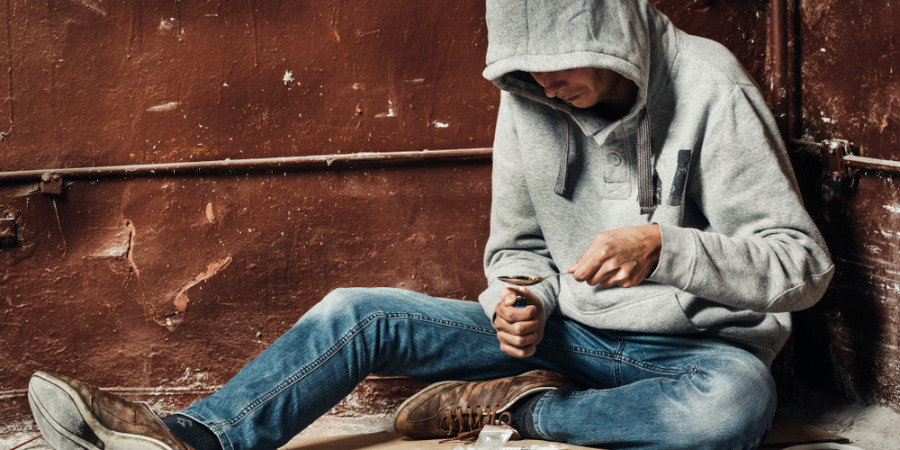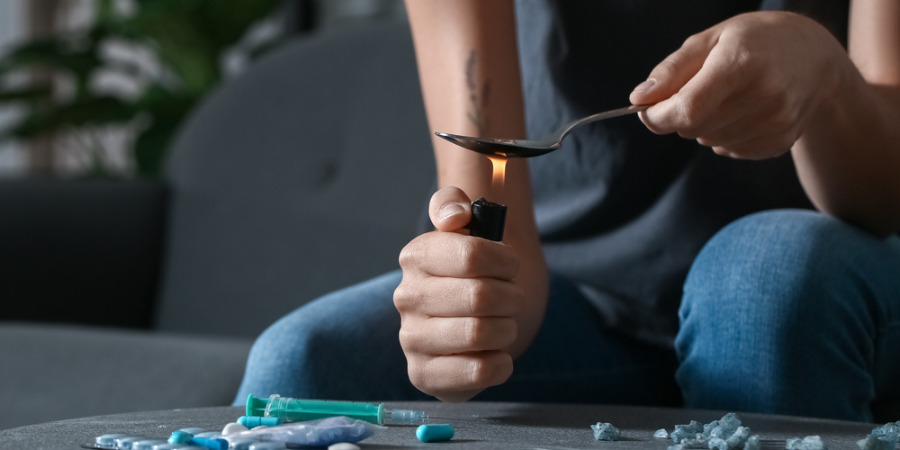
Written by:

Medically Reviewed by:
Last Updated:
February 14th, 2025
Crack Cocaine Rehab
What is crack cocaine rehab?
Crack cocaine rehab is a structured treatment programme designed to help individuals overcome dependency on crack cocaine. It involves medically supervised detox, tailored therapies and aftercare to address the physical and emotional challenges of addiction.
At Liberty House, we aim to guide you through each step of recovery with compassion and understanding. Our approach is personalised to your needs, ensuring a safe and supportive environment where you can rebuild your life free from crack cocaine dependency.
In what setting can crack cocaine rehab be taken?
Most drug rehab programmes can be taken in either an inpatient or outpatient setting; however, for those with severe crack cocaine addictions, inpatient care is strongly recommended. The crack cocaine withdrawal stages can be particularly intense and challenging to manage without constant guidance.
In such cases, inpatient rehab offers 24/7 medical observation, creating a safe space where every aspect of your recovery is carefully monitored and supported.
Choosing the right setting often depends on the severity of your addiction and the support you need to stay on track.
Is crack cocaine rehab necessary for me?
Crack cocaine addiction is one of the most dangerous forms of substance dependency, making it crucial to seek help. What might have started as a party enhancer can quickly spiral into a full-blown addiction, impacting your physical health, relationships and mental well-being.
Addiction clouds judgment, often leading you to believe you have things under control when the reality is far different. To help you assess your situation, here are five questions. If you answer ‘yes’ to any of them, it may indicate a need for professional rehab:
- Do you find it hard to go through a day without using crack cocaine, even when you initially planned not to?
- Have you noticed that you need to use more crack cocaine to feel the same effects?
- Do you experience intense cravings or physical discomfort when you try to stop using crack cocaine?
- Have you neglected responsibilities, such as work or family, because of your crack cocaine use?
- Do you use crack cocaine as a way to cope with stress, anxiety or other emotions?
How is the crack cocaine rehab programme structured?
The idea of rehab can feel daunting, especially since the journey is often personal and rarely discussed openly. To ease any concerns, let’s explore how a crack cocaine rehab programme is structured, covering each stage with care and clarity.
Initial assessment
Crack cocaine rehab begins with an initial assessment. This step is about understanding your needs, medical history and personal goals. It helps create a tailored plan that ensures you receive the right support from day one. The process is confidential and compassionate, making it an important foundation for your recovery.
Detox
Detoxing from crack cocaine involves safely removing the substance from your system under medical monitoring. This phase can be physically and emotionally challenging, but having trained professionals by your side makes all the difference. Crack cocaine withdrawal symptoms, such as irritability, fatigue and intense cravings, are managed with care to ensure you feel supported and secure throughout.
Therapy
Therapy is at the heart of crack cocaine rehab. Through a combination of one-on-one counselling, group therapy and evidence-based approaches like CBT (Cognitive Behavioural Therapy) and DBT (Dialectical Behavioural Therapy), you’ll work to uncover the root causes of your addiction. Holistic options such as yoga, mindfulness and art therapy provide additional tools to rebuild your confidence and emotional resilience.
Aftercare
Recovery doesn’t end when rehab does. Aftercare provides ongoing support through follow-up sessions, group meetings and other resources designed to maintain sobriety. This stage is about reinforcing healthy habits and ensuring you feel prepared to navigate daily life without crack cocaine.
Why you shouldn’t detox at home
The idea of detoxing from crack cocaine at home might seem tempting, especially as it appears more convenient and cost-effective. While this is understandable, it’s essential to recognise the significant risks involved.
Crack cocaine withdrawal can be intense and unpredictable, making professional medical care crucial.
Common myths about crack cocaine detoxing
Myth 1: Detoxing at home is just as effective as professional care.
Reality: Home detox lacks the medical support needed to manage severe withdrawal symptoms, which can lead to relapse or dangerous health complications.
Myth 2: Once I get through the initial withdrawal, I’ll be fine on my own.
Reality: While physical symptoms may subside, emotional and psychological challenges often persist, making ongoing support critical for lasting recovery.
Myth 3: Tapering down crack cocaine use on my own will make detox easier.
Reality: Crack cocaine doesn’t lend itself to tapering because of its highly addictive nature. Attempting to reduce use without medical supervision often leads to bingeing due to intense cravings, making it harder to quit. Professional detox ensures a controlled and supportive environment for withdrawal.
Crack cocaine detox timeline
To better understand why professional detox is essential, let’s break down the withdrawal stages and the risks involved in each step.
Early withdrawal (6–12 hours after last use)
- Symptoms and emotions: Anxiety, restlessness and intense cravings can begin.
What can go wrong at home: The discomfort can feel overwhelming, leading to an increased risk of relapse.
How Liberty House can help: Our team offers calming techniques and, where appropriate, medication to ease this phase and keep you safe.
Acute withdrawal (1–3 days after last use)
- Symptoms and emotions: Fatigue, depression, irritability and severe cravings are common.
- What can go wrong at home: The mental strain during this period can lead to self-harm or dangerous behaviours without professional guidance.
- How Liberty House can help: We provide round-the-clock supervision and holistic therapies to manage symptoms, ensuring your comfort and safety.
Post-acute withdrawal (up to several weeks after detox)
- Symptoms and emotions: Sleep disturbances, mood swings and lingering cravings may occur.
- What can go wrong at home: Overconfidence can result in a relapse, especially without tools to manage emotional triggers.
- How Liberty House can help: Through therapy and aftercare, we equip you with strategies to handle long-term challenges, giving you the confidence to move forward.
Reach out to Liberty House
Crack cocaine addiction can feel like an insurmountable challenge, but with the right support, recovery is possible. At Liberty House, we’re here to guide you through every step of your journey with compassion and expertise.
If you or someone you care about is struggling with crack cocaine addiction, don’t wait to seek help. Contact us today to take the first step toward a healthier, brighter future.







